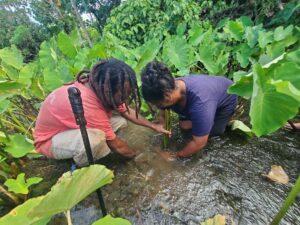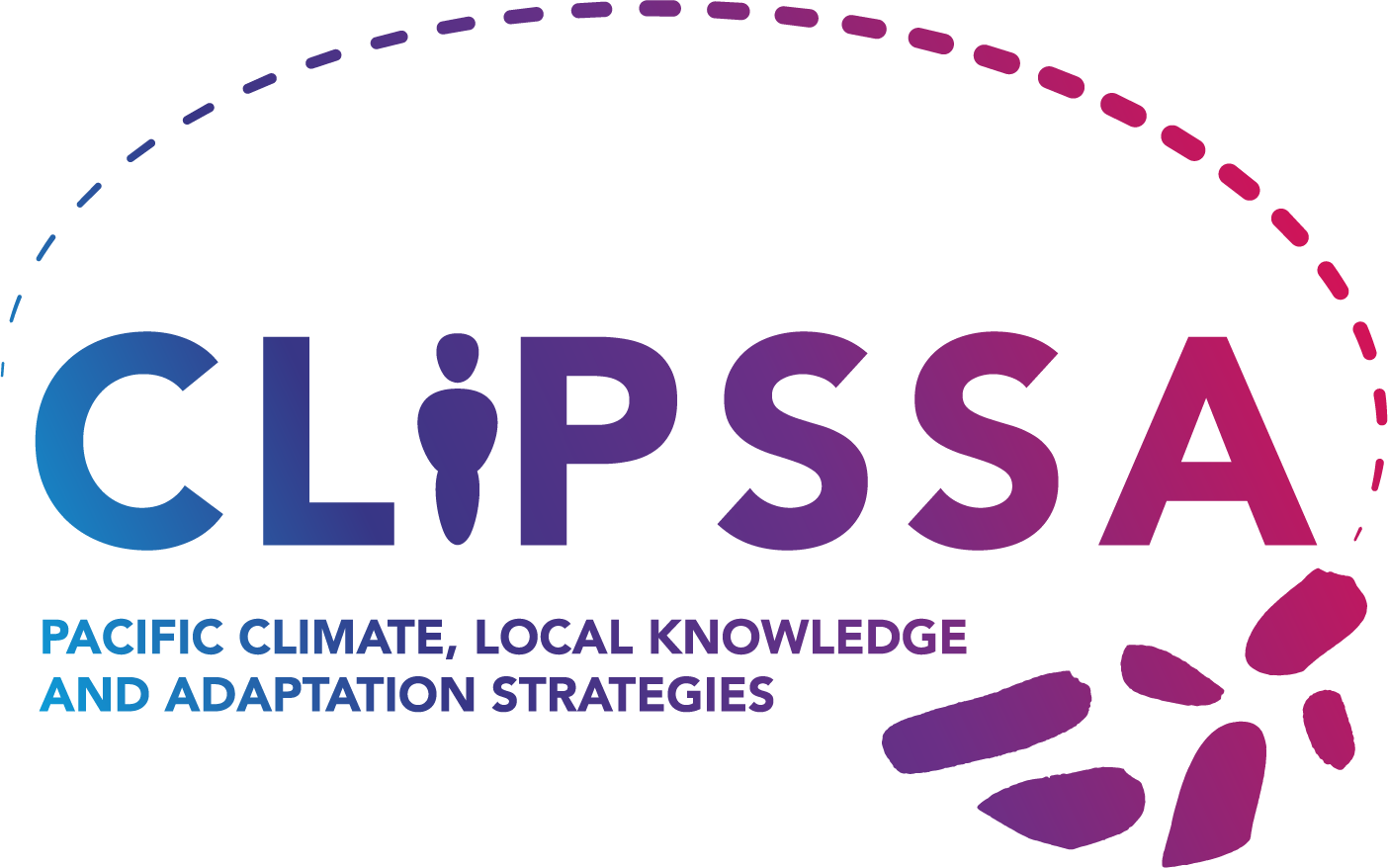At the 92nd ACFAS conference, held May 5–9, 2025, in Canada on the theme of “cross-disciplinary research perspectives on responsible management practices,” the CLIPSSA project (Climate of the South Pacific, Local Knowledge, and Adaptation Strategies) gave a voice to Pacific island agriculture. In a presentation entitled “From perception to adaptation strategies: local climate change management practices in New Caledonia and Vanuatu,” Samson Jean Marie, a doctoral student in anthropology and geography working on this project, presented the initial results of these field surveys. He explained how farmers in these territories, who are on the front line of climate change, are adapting their practices to cope with it.
Territories on the front line
Oceanian societies, which are heavily dependent on natural and agricultural resources, are on the front line when it comes to intensifying weather, climate, and environmental disturbances: prolonged droughts, destructive cyclones, soil salinisation, and shifts in agricultural seasons. Vanuatu, regularly ranked among the countries most exposed to global climate risks, is a striking example of this. In New Caledonia, repeated episodes of La Niña and El Niño are causing water imbalances and undermining food security in rural areas.
Based on around 100 interviews conducted with farmers, institutions, politicians, and local organisations, Samson, in collaboration with the project’s research team, analyses how agricultural knowledge is built and transmitted in the face of climate change.
This resolutely interdisciplinary approach combines anthropology, agronomy, geography, sociology, and climatology to grasp the complexity of local dynamics. In his presentation, the doctoral student outlined a range of local adaptive responses, such as crop management practices, water management strategies, local cyclone warning systems, and post-disaster responses identified in the areas studied. “Adaptation is not simply a matter of applying international recommendations. It is experienced, improvised, and discussed at the level of gardens, fields, and families,” explained the young researcher.
Dynamic local knowledge
Contrary to popular belief, local knowledge is not static. It is transmitted, adjusted, and reinvented in response to climate change. Traditional mulching, hole cultivation, water storage in handmade tanks, adaptation of varieties, and community oral alerts before cyclones: farmers’ innovations take many forms, often invisible to decision-makers, but central to local resilience. “In several villages in Vanuatu and among tribes in New Caledonia, experienced farmers serve as information relays before cyclones arrive. They read the signs of the wind, the birds, and the sea. These biocultural markers, combined with weather information, enable farmers to anticipate the event [cyclone] ” better, as observed more broadly by the research team.
From words to action: when local practices lead the way
By documenting this knowledge, the CLIPSSA project highlights that rural communities in the Pacific are not simply “vulnerable” to the effects of climate change: they are already taking action, often in pragmatic and innovative ways, far from the media spotlight or international climate policies. In other words, these initiatives already embody a responsible approach to climate and environmental change management at the local level. They provide a concrete foundation on which public policies and institutions can build.
The ACFAS conference thus provided a forum to highlight the urgent need to change approaches to local agricultural adaptation practices in climate policies. In response to the conference title, “Cross-disciplinary research perspectives on responsible management practices,” and the conference debate, “Moving from words to action,” the doctoral student replied: “It is time to move from words to action. And that starts with recognising that adaptation cannot be decreed, but must be built with those most directly affected: the inhabitants themselves. Local practices, particularly those related to adaptive responses to the impacts of climate change, are a form of local expertise in action. Ignoring them means depriving ourselves of essential levers for sustainable adaptation.”

Taro plantation in the ‘voura’ of Ipayato (Santo, Vanuatu) @ Samson JEAN MARIE
